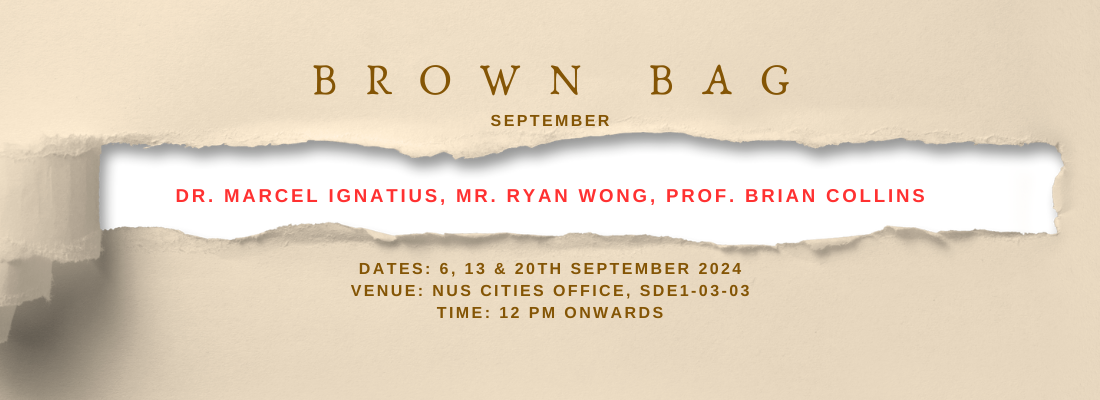
6 September 2024 |
From Data to Action: Enhancing Campus Sustainability with CoolNUS - BEAM initiative
by Dr. Marcel Ignatius (Senior Research Fellow, Department of the Built Environment, NUS)
Dr Ignatius has a PhD in Architectural and Building Sciences/Technology from NUS and is a researcher with specific interest in urban micro-climate, sustainability, climate change, and green design.
13 September 2024 |
Creating More Accessible Cities, a Data Driven Approach
by Mr. Ryan Wong (Managing Director, APAC Region, PTV Group)
Cities across our region are experiencing unprecedented growth. By 2030, Southeast Asia will be home to six mega-cities. This rapid urbanization brings significant challenges, from crippling congestion to the impacts of climate change. However, data can illuminate travel patterns, offering insights into building more resilient transport systems. Ryan Wong, Managing Director of PTV APAC, will share global use cases that demonstrate how decision-makers are leveraging data to make informed and impactful decisions.
20 September 2024 |
Sharing in cities - a golden opportunity
by Prof. Brian Collins (Emeritus Professor, University of College London and Visiting Professor, NUS Cities)
We all probably know what sharing is, but the nuts and bolts of sharing, including the size, scale and things that we share, are rarely discussed out loud or recognised as an act of sharing. One definition we found, and one that is very popular, comes from Russel Belk (2007), who defined sharing as the act and process of distributing what is ours to others for their use and/or the act of receiving or taking from others for our use. This definition is a good start; it suggests that sharing is a social act between one person who owns something and other people who don’t own something.
The sharing will focus on the book --> https://blog.soton.ac.uk/serg/files/2017/12/littlebookofsharinginthecity.pdf
Professor Brian Collins is Emeritus Professor of Engineering Policy at UCL. He led the creation of UKCRIC and cofounded a new Department at UCL, Science, Technology and Engineering and Public Policy between 2011 and 2020. He served as specialist adviser to the House of Lords Science and Technology Committee’s inquiry into scientific infrastructure in 2013 and 2014. Before joining UCL, he served as Chief Scientific Advisor (CSA) to two British Government departments DfT and BIS with responsibility for overseeing science, engineering, and technological policy and evidence activities. He was Professor of Information systems at Cranfield University, Global CIO at the law firm Clifford Chance, and IT Director at the Wellcome Trust. He held the position of Chief Scientist and Director of Technology at GCHQ between 1987 and 1991 and Deputy Director of the Royal Signals and Radar Establishment (now part of DSTL) in 1986.
Should you wish to share your work and research with our community, please kindly reach out to us via email!

